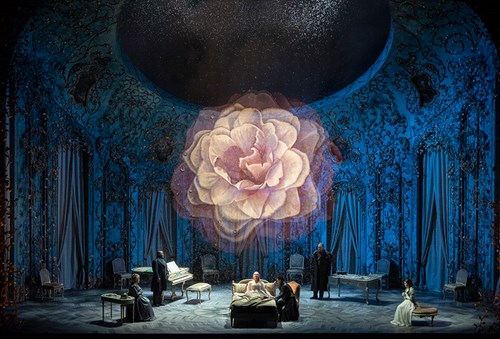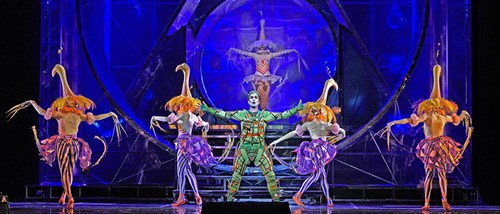The Metropolitan Opera is one of the most renowned opera houses in the world, having featured some of the greatest classical singers and musicians since its founding in 1880. Located in New York City, The Met has been home to some of the most iconic productions in the history of opera. From Mozart’s The Marriage of Figaro to Verdi’s Aida, the company has presented some of the most beloved, classic works of the Operatic canon. Today, The Met continues to be a significant force in the music world, presenting a wide range of performances from renowned and emerging composers to a large and faithful global audience. They continually strive to bring new and exciting pieces to the stage while preserving the core of the opera tradition. With its vast history, variety of performances, and impressive worldwide reach, The Met is a wonderful place for educational activities with younger audiences.
The Benefits of Attending The Met Opera As a Student Group
The Met Opera offers students a unique insight into the world of classical music, beyond actually viewing the opera in person, allowing them to enjoy performances from the comfort of their school or through the virtual Global Summer Camp. These opportunities provide young people an up-close introduction to the grandeur of opera, as well as the chance to gain a greater understanding of the history and tradition of this age-old art form. In addition, the camp allows students to engage with their peers from around the world and acquire valuable skills related to producing an opera performance.
The Metropolitan Opera also supplies teachers with a wealth of resources and materials for use in their classrooms to help prepare for attending a live performance, including Educator Guides and Illustrated Synopses. They offer detailed information about the works, their composers, and the artists involved in their production, giving lecturers a comprehensive background of the works and the creative forces behind them. In addition, Illustrated Synopses provide visual overviews of the performances and their plots to help bring the stories to life in class. These resources are designed to bring the best of classical theatre to students of various ages and backgrounds and prepare them for an in-person visit.
Tips For Making The Most of Your Student Group Visit to The Met Opera
Visiting The Met and seeing an opera in-person gives students a unique opportunity to experience classical music come to life, and a wide range of educational opportunities help make the world of the opera accessible and engaging. We have put together a few recommendations to help your students make the most of their visit and get the best possible experience:
- Before seeing an opera, take some time to familiarize your group with the material. Organize an in-class reading of the plot, and get to know the characters and music of the production. Consider watching a video of past performances or listening to one of the many marvelous recordings available. This will help the students get more out of the visit as they will already know the various characters and their roles in the story and won’t miss any key details of the plot.
In addition, check The Met's website for information about the conductor and the cast. It may give students more context to a specific production and allow them to understand a piece's nuance better.
- Arrive early to your seats so you can have a stress-free experience without any rush and distractions. Take some time to admire the beauty of the opera house. Help your students find their seats and settle in before the performance begins. That also gives them all time to take those IG pics they all will want to share before having to silence their phones.
- During the performance, encourage your class to pay attention to all the details, from costumes to scenic design, as all the production elements work together to tell the story. Taking note of all the elements will help the group to further understand and appreciate the production and how everything coalesces to emotionally impact an audience. The costumes can be a clue to the character's intentions, while the stage setup can illuminate the world the characters inhabit. Why did the composer choose to write in a bass voice for one character and a tenor for another? How does it feel when the entire opera chorus enters the stage for those lush, amazing production numbers? Providing tent poles in advance helps to keep your students focused and sets the stage for deeper enjoyment and education.
- After the performance, talk about what you saw and how you felt with your students. Discussion is a great way to process your emotions and reflect on the opera's meanings. Sharing personal interpretations may help others understand the opera you saw in a totally different way. Asking questions and debating different perspectives helps students gain a deeper appreciation for the performance and its central idea and develop their individual opinions about the art form as a whole. Plus, it can be a fun bonding activity for the group and a chance to create new memories together.
The Metropolitan Opera is the perfect choice for groups of all sizes, offering a wide range of performances to suit any taste. From grand operas like Turandot and La Traviata to chamber works like Rossini's Petite Messe Solennelle, the world-renowned opera house continues to bring joy to audiences from around the globe. The Met is perfect for a night out with friends, a unique corporate event, or an educational opportunity. With its stunning architecture, top-tier performances, and experienced staff, it will surely make your first visit to the opera an unforgettable experience.
Contact Broadway Inbound for group tickets to The Metropolitan Opera